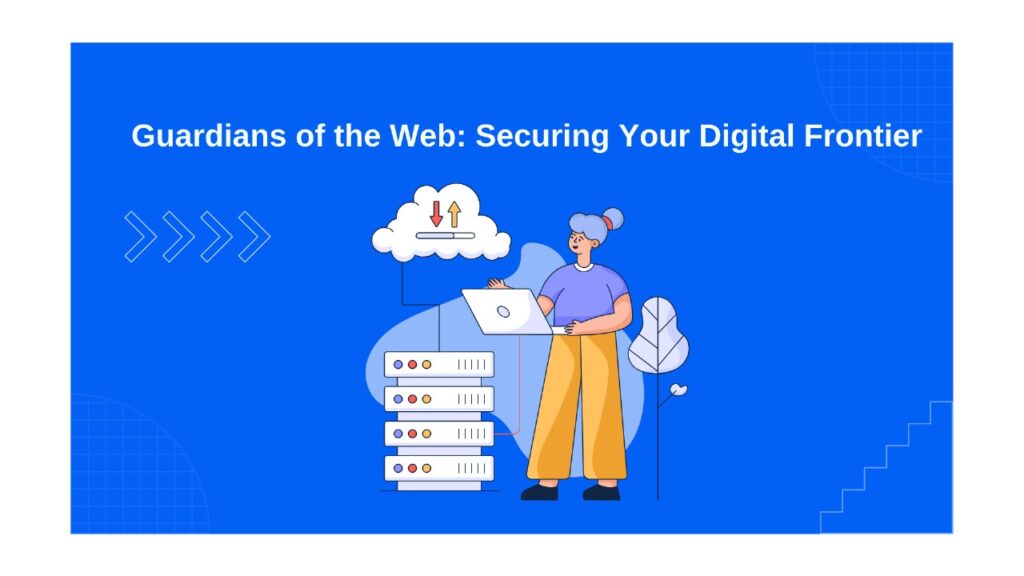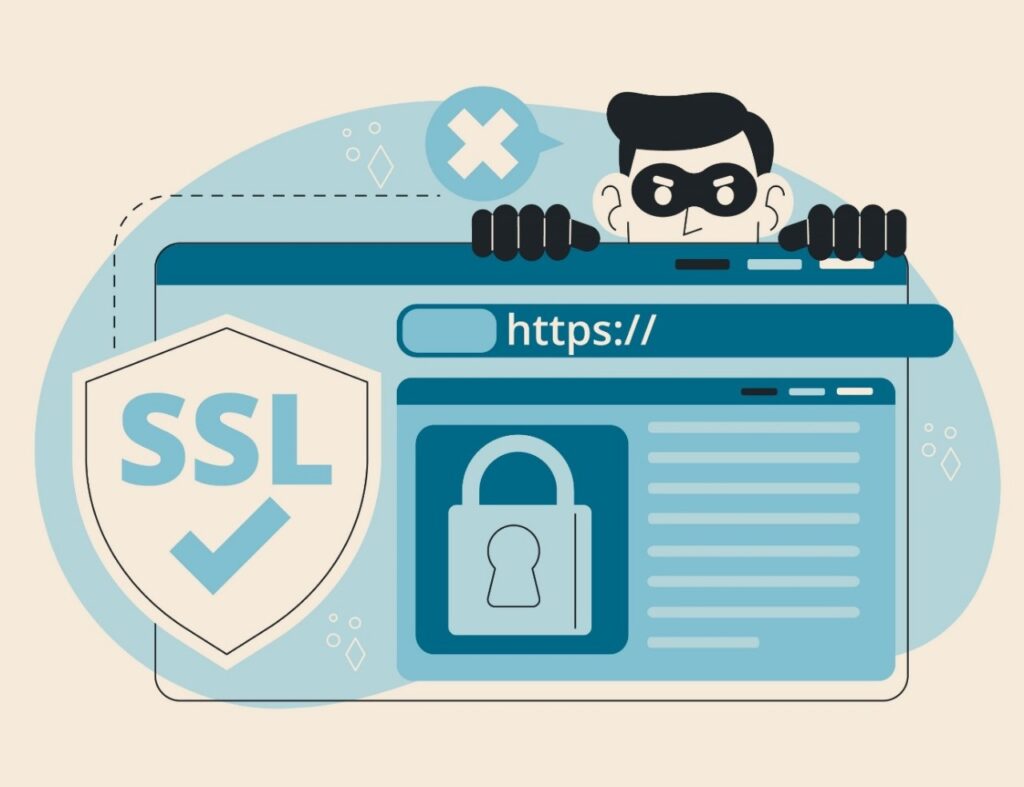Web hosting security is vital for keeping your online presence safe and protecting sensitive data. As cyber threats continue to grow and evolve, it’s crucial to implement strong security measures, regardless of the size of your website.

What is Web Hosting and Why is Security Essential?
Web hosting is a service that allows individuals and businesses to publish their websites and make them accessible on the internet. It provides the necessary space on a server to store your website’s files, allowing users to view your site online.
Why is Web Hosting Security Crucial?

Web hosting security is vital because your website is a digital asset containing sensitive data, such as customer information, financial transactions, and business records. Without robust security measures, your website is at risk of cyberattacks, including hacking, data breaches, and malware infections. These threats can result in severe consequences, such as data loss, reputational damage, and financial losses. Securing your web hosting environment protects your website from these risks, ensuring a safe and reliable online presence for your visitors.
Common vulnerabilities in web hosting services include:
- SQL Injection: Attackers exploit vulnerabilities in web applications to execute malicious SQL queries, potentially gaining access to sensitive data.
- Cross-Site Scripting (XSS): This occurs when attackers inject malicious scripts into web pages viewed by other users, potentially stealing session cookies or defacing websites.
- Buffer Overflow: Attackers exploit buffer overflow vulnerabilities to execute arbitrary code or crash the system.
- File Inclusion Vulnerabilities: These allow attackers to include files on a server through the web browser, leading to remote code execution.
- Denial-of-Service (DoS) Attacks: Attackers overwhelm the server with traffic, causing it to become unavailable to legitimate users.
- Malware Infections: Malicious software can be injected into web hosting environments, leading to data theft, defacement, or further attacks.
- Man-in-the-Middle (MitM) Attacks: Attackers intercept and alter communication between the user and the server, potentially stealing sensitive information.
- Poorly Secured Web Applications: Vulnerabilities in web applications, such as coding issues or misconfigurations, can give attackers access to your website.
What are some best practices for securing web applications?
Securing web applications is crucial to protect against various cyber threats. Here are some best practices:
- Input Validation: Ensure that all user inputs are validated to prevent injection attacks like SQL injection and cross-site scripting (XSS).
- Use HTTPS: Encrypt data in transit by using HTTPS for all communications between the client and server.
- Authentication and Authorization: Implement strong authentication mechanisms and ensure proper authorization checks to prevent unauthorized access.
- Regular Security Audits: Conduct regular security audits and code reviews to identify and fix vulnerabilities.
- Error Handling: Avoid exposing detailed error messages to users. Instead, log errors internally and display generic messages to users.
- Session Management: Use secure methods for session management, including setting secure cookies and implementing session timeouts.
- Data Encryption: Encrypt sensitive data both at rest and in transit to protect it from unauthorized access.
- Web Application Firewalls (WAF): Deploy a WAF to filter and monitor HTTP traffic between a web application and the internet.
- Security Headers: Use security headers like Content Security Policy (CSP), X-Content-Type-Options, and X-Frame-Options to protect against common attacks.
- Security Awareness Training: Educate your development and operations teams about security best practices and emerging threats
What role does a Web Application Firewall (WAF) play in web hosting security?
A Web Application Firewall (WAF) plays a crucial role in web hosting security by providing an additional layer of protection for web applications. Here are some key functions of a WAF:
- Filtering and Monitoring HTTP Traffic: A WAF filters and monitors HTTP traffic between a web application and the internet, protecting against common web-based threats like SQL injection, cross-site scripting (XSS), and file inclusion.
- Blocking Malicious Traffic: It identifies and blocks malicious traffic before it reaches the web application, preventing data breaches and other attacks.
- Protecting Sensitive Data: By preventing unauthorized access and data leaks, a WAF helps protect sensitive information such as customer data and financial records.
- Enhancing Compliance: WAFs help organizations meet compliance requirements like PCI DSS by providing necessary security controls.
- Preventing Denial-of-Service (DoS) Attacks: A WAF can mitigate DoS attacks by filtering out malicious traffic that aims to overwhelm the server.
- Improving Application Security: It adds an extra layer of security to web applications, especially those with vulnerabilities or legacy code.
Here are the key differences between shared, dedicated, and managed hosting in terms of security:
Shared Hosting
– Resource Sharing: Multiple websites share the same server resources (CPU, RAM, storage), which can lead to security vulnerabilities if one site is compromised.
– Limited Control: Users have limited control over server settings and security configurations
Basic Security: Typically includes basic security measures like firewalls and malware scanning, but the shared environment increases the risk of cross-site contamination.
Dedicated Hosting
– Exclusive Resources: A single website has exclusive access to all server resources, reducing the risk of security breaches from other sites
– Enhanced Security: Offers higher security with the ability to implement custom security measures and software
– Full Control: Users have full control over server configurations, allowing for tailored security settings.
Managed Hosting
– Comprehensive Security: Managed hosting providers handle all security aspects, including updates, patches, and monitoring.
– Expert Support: Access to expert support for security issues, ensuring quick resolution of potential threat.
– Regular Backups: Includes regular backups and disaster recovery plans to protect data¹.
How can you choose a secure web hosting provider?

- Reputation and Reliability: Look for providers with a strong reputation and positive reviews. Reliable providers are less likely to have security breaches.
- Security Features: Ensure the provider offers essential security features such as SSL certificates, automatic backups, malware scanning, DDoS protection, and two-factor authentication.
- Regular Updates and Patching: Choose a provider that regularly updates and patches their servers to protect against vulnerabilities.
- Data Center Security: Check if the provider’s data centers have robust physical security measures, such as surveillance, access controls, and disaster recovery plans.
- Customer Support: Opt for a provider with 24/7 customer support to quickly address any security issues that may arise.
- Compliance: Ensure the provider complies with relevant security standards and regulations, such as GDPR, PCI-DSS, or HIPAA, depending on your needs.
- Scalability: Choose a provider that can scale with your business, offering additional security features as your website grows.
Conclusion
NGXP Technologies stands out as a premier provider of web hosting and security services. By leveraging cutting-edge technologies and industry best practices, NGXP Technologies ensures that your website remains secure, reliable, and efficient. Their comprehensive security measures, including SSL certificates, regular updates, malware scanning, and DDoS protection, safeguard your digital assets from potential threats. With a strong focus on customer support and tailored solutions, NGXP Technologies is committed to helping businesses achieve a robust and secure online presence. Trust NGXP Technologies to protect your website and provide a seamless hosting experience.
